Beach of Spain nicknamed Fleau des Espagnols
Ideal candidate
The future pirate was born in Les Sables-d'Olonn tentatively in 1630, and his name was Jean-David No. In honor of the place of his birth, he took the pseudonym "Olone". In twenty years, Jean-David was able to become a soldier of the West Indies Company. Once turned out on Espanyol in the company of French buccaneers. And, of course, he himself soon began to harness robberies in San Domingo.
In the middle of the seventeenth century there was a long and bitter war between France and Spain. And Olone understood that the fighting was his vocation. He stood out among the "colleagues" very much, so soon Francois was noticed by the governor of Tortuga himself. The leader of the pirate movement realized that he would make a good captain from the Frenchman who would generate income. Olone allocated a ship and crew. This chance the pirate took advantage of the full program.
The captain’s harshness and composure inspired superstitious fear not only to his opponents, but also to his own team. Everyone knew: Olona will not stand on ceremony, immediately send to the next world. With particular hatred, the Frenchman burned toward the Spaniards. He did not spare anyone and forbade his team to take prisoners. The Spanish sailors knew that the meeting with Olon would end in a painful death, so they fought to the last. It was better to die in battle than from the tormenting and long torture of a pirate captain.
In those days, the viceroy of New Spain was Juan de Leyva and de la Cerdà. This man was very sensitive about security issues. Therefore, during his reign, the Spanish merchant ships never went to sea alone. They were always accompanied by warships. This initiative did not appear from scratch. The king of New Spain thus tried to cope with the pirates. After all, once a wounded soldier, deprived of fingers and eyes, was brought to him. This unfortunate man was spared with one goal - he had to give the king a letter. It turned out, the author of the message is a certain Francois Olone. Juan de Leyva and de la Cerda stole the letter and read: “I will kill the Spaniards like dogs. One day I will get to you and cut off your head. ”
Take no prisoners!
Why Olona so fiercely hated the Spaniards, it is not clear. But the fact remains that he did not spare them, despite even some financial obligations. After all, the captain of a pirate ship was supposed to give part of the spoils to his “superiors”. And the captives played the role of a commodity that was not difficult to sell. More precisely, to demand for them a solid ransom. But Olone was the only corsair at that time who basically killed everyone. And the captured sailors, he, most often, beheaded himself. The living left only one, so he told about the terrible French pirate.
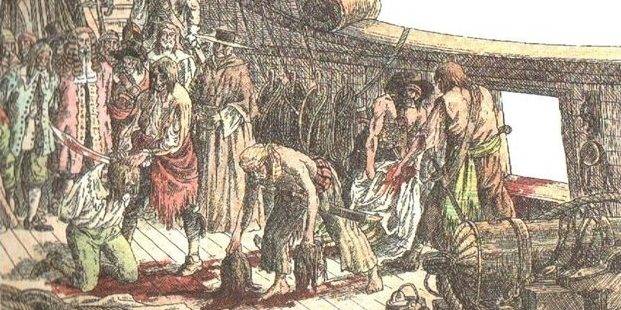
But the first task for Olona was almost the last for him. In the early sixties, he ventured to seize the rich city of Campeche, which was located in Yucatan. This town is very well guarded. True, the pirate is not particularly worried. He was confident of his own victory. But the weather made its adjustments. At first, the pirate ship landed in a powerful storm, but in completing the troubles, it was unable to dodge meeting with the reefs. The captain and the team remained only one way out - to land on the shore and take the fight. Numerical superiority was on the side of the Spaniards. A couple of hundred pirates led by Olon took, as it seemed, their last battle. Of the French, no one survived ... except for Francois. When it became clear that he would not be able to win, he was smeared with the blood of others from head to toe and hid among numerous corpses. In honor of the landmark victory over the pirates, the governor Campeche ordered to hang the bodies of the dead French along the coast. But since there were too many corpses, the hanging process took several days. All this time, Olona had to pretend to be dead. But still, after a couple of days, he managed to escape. No, he could not leave just like that. He wanted to brutally revenge his offenders. Therefore, Olone managed to incite slaves to escape, then arson a warehouse with weapons and managed to hijack a fishing boat. Along with him, several slaves set off for Tortuga. Of what happened at the walls of Campeche, the inhabitants of the island, of course, knew. Therefore, no one expected to see Olona alive. Thanks to this incredible rescue, the Frenchman gained a reputation as a lucky captain.
In general, in the first four years of the pirate career, Olona lost three ships and almost the entire crew. Therefore, in the future, the Frenchman chose small ships, and the number of his crew did not exceed three dozen people. And it worked.
In 1663, Olon suddenly “emerged” from Cuba. On the Ester River, he and the team reached the village of La Villa de los Cayos. The inhabitants of this city were the main suppliers of leather, tobacco and fish for the capital of the island. Olone ordered to seize the boats with the cargo, and to kill the unfortunate sailors on the spot. When the governor of Havana found out about the atrocities of the French, he sent a warship to liberate the city. He ordered the soldiers to kill all the pirates, leaving only their leader alive. For him, preparing a special penalty.
But to catch Olona off guard failed. The French attacked the ship as soon as it entered the river. The Spaniards, who did not expect the attack, hid in the hold. It was possible to get out of it only through the hatch. Having driven themselves into a trap, the Spaniards did not yet suspect that they were dealing with "the very Frenchman." Olone, standing at the hatch, ordered the soldiers to leave the hold one by one. In case of failure, the pirate threatened to blow up the ship. There was no choice. One by one they got out of the hold, where they were immediately beheaded personally by Francois Olone. Only one was left alive. He was handed a letter to the governor of Havana and released. Realizing that the second time it is not so easy to win, Olona ordered his people to leave the island. But previously the French set fire to the selva.
Capture Maracaibo
Because of their extraordinary cruelty, the French called their compatriot "The Beach of the Spaniards" (Fleau des Espagnols). The Spaniards themselves called Olon sangriento - bloody. And after the pirate made a raid on Maracaibo and Gibraltar, his name began to frighten children, representing Francois as the source of hell on earth. It was such a reputation and wanted to acquire a Frenchman.
The attack on Maracaibo and Gibraltar became the peak of Olon’s pirate career. The first on his list was the city of Maracaibo. A pirate with his people set up camp on the shores of the lake of the same name. After that, he applied his favorite practice - he captured all the ships going into or out of the city. No prisoners were taken, people were tortured, trying to extract valuable information from them. For example, the number of the garrison. One prisoner could not resist telling that the city was virtually unguarded. Olone decided not to waste time and ordered to attack Maracaibo.
And the attack did not come from water, but from land. Olone landed on the shore and, after passing through the jungle, attacked the city at night. Fortunately, most of the population of the city had already managed to move to Gibraltar, located nearby. Mining was not as big as the Frenchman expected. Therefore, he decided not to dwell on one Maracaibo. In his head, a plan to seize Gibraltar ripened.
The Spaniards also understood that Francois Olone would soon appear under the walls of the city. Therefore, we began to prepare for defense. The townspeople, along with the soldiers, erected a new stockade and built redoubts. The entire population of the city understood that in case of defeat there would be no mercy.
The inhabitants of Gibraltar greeted the French with grapeshot. Then they opened fire with muskets. In the very first attack about fifty pirates fell down. Olone ordered to retreat. And here the Spaniards themselves presented an unexpected gift of fate. They were so happy with their first success that they rushed to kill the pirates. Francois gave the command to attack. In the fight head-on were stronger than the French. About ten Spanish soldiers were in the swamp. Francois personally collected pistols from the battlefield and began shooting.
Surprisingly, the pirate did not cut the inhabitants of the captured Gibraltar. Having collected a ransom from them, he returned to the walls of Maracaibo. Having collected a tribute from inhabitants, the French left.
Pirate vs Nicaragua
Olone returned to the halo of glory and greatness. Success in Maracaibo and Gibraltar turned his head. And the Frenchman decided not to be penny wise, choosing the next victim. This time it was Nicaragua. To devastate such a large territory, Francois “discharged” 6 ships and a squadron above 7 of hundreds of professional pirates.
But from the very beginning everything went according to an unplanned scenario. Olone is fatally unlucky. First, the ships fell into calm. Because of this, they drifted to the Gulf of Honduras. In order not to sit idle while waiting for the wind, the pirates began robbing small villages on the coast inhabited by turtles. Then they managed to seize the Spanish ship in Puerto Cabello. From this town Olona with his people went to San Pedro. The Spaniards tried their best to hinder the advancement of the French. Dutchman Alexander Ekskvemelin, author of the book "Pirates of America", described this march as follows: "If Olona and the poor creature did not begin to torture, they didn’t immediately answer the questions, then this pirate was not worth cutting the victim into pieces, and finally lick the blood from the saber . He was ready to kill any Spaniard. If any of them, fearing torture or failing to endure it, agreed to send the pirates to their compatriots, but on the basis of curvature they did not find the way immediately, he was subjected to hellish torture and beaten to death. ”
And yet Olone managed to achieve the goal. After a fierce battle, San Pedro was captured. Here are just mining turned out to be extremely scarce. Disappointed pirates began to brawl. Francois with great difficulty managed to negotiate with his team. He had to go all-in for a promise of rich booty soon. The pirates believed. But luck turned away from the captain. With great difficulty, having lost most of the crew, Olone managed to capture a powerful Spanish ship. But there was no gold and silver, only iron, paper and blue dye (indigo). This time to avoid rebellion failed.
A part of the team left Olona and decided to return to Tortuga. With the remaining pirates, the Frenchman headed for the coast of Nicaragua. But the ship hit the reef, had to land on the beach. After long attempts to remove the ship, Olon ordered to disassemble it and build a barcalon. It took several months. After that, part of the pirates remained on the coast, while the rest, together with Olona, went to the mouth of the San Juan River. The Frenchman wanted to get hold of the local population canoe. But this attempt failed. Spanish soldiers from the fort of San Carlos de Austria, in alliance with the Indians, defeated the pirates. Olone himself miraculously survived. The desire for revenge forced the Frenchman to make a fatal mistake. He decided not to return to his (the reputation of the lucky captain and suffered so much), and try to seize some ship from the Spaniards. But this venture ended in complete failure. In Darien Bay, the pirates stumbled upon the Indian cannibals. In their cruelty, savages could give odds even to Olona. Eksveme¬¬lin described the last battle of the Frenchman: "They tore Olone in the heart and roasted his remains."
In that fight, only a few pirates survived. They also told about the Spaniards' scourge's death.
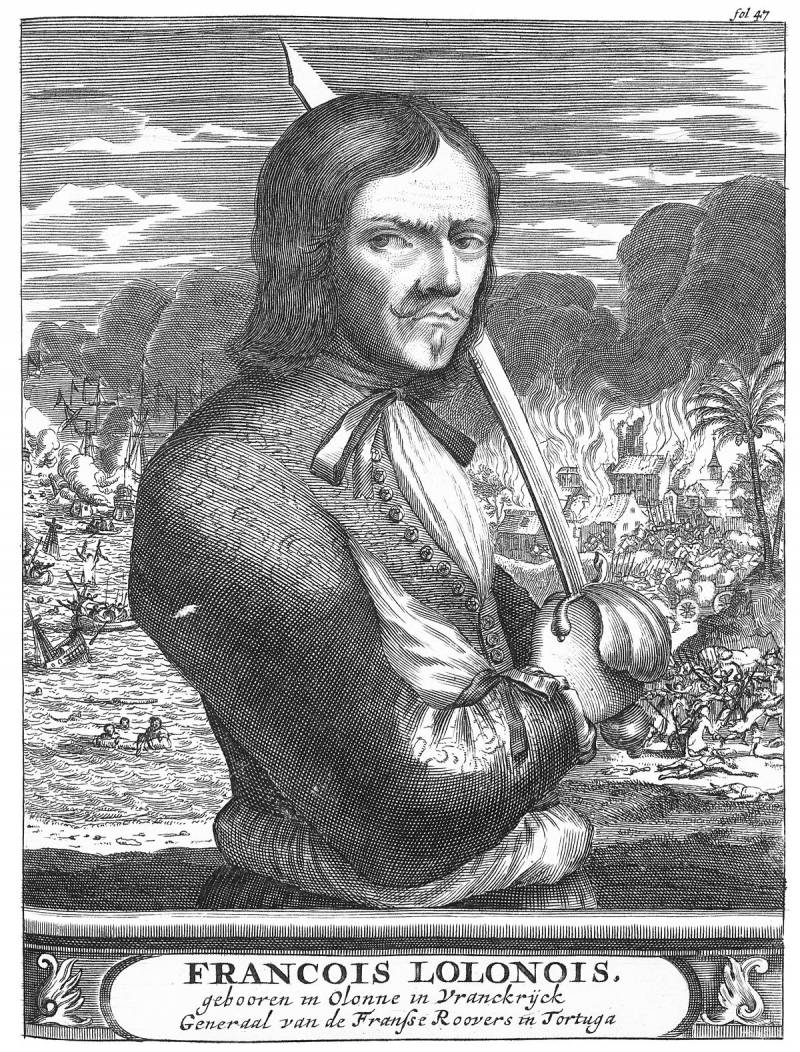
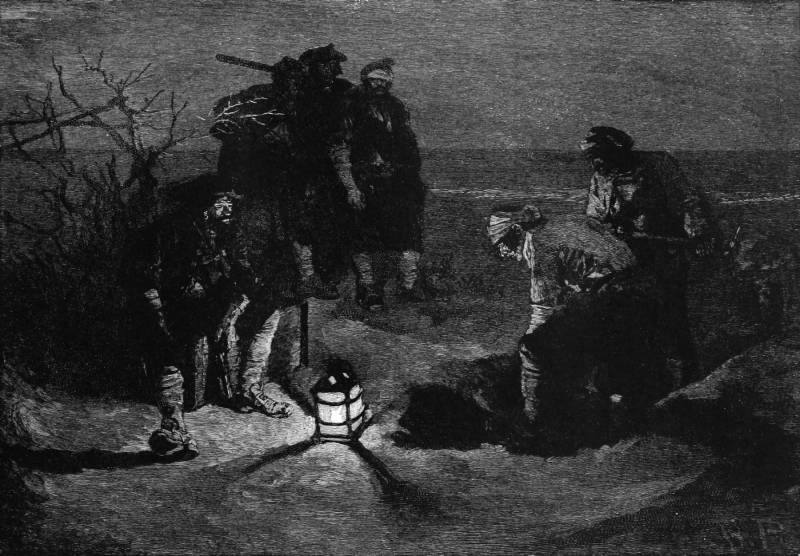
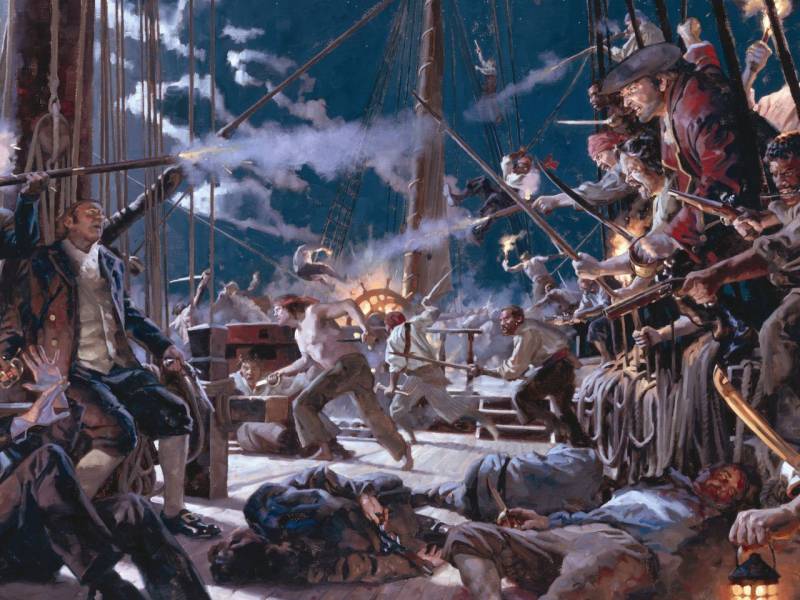
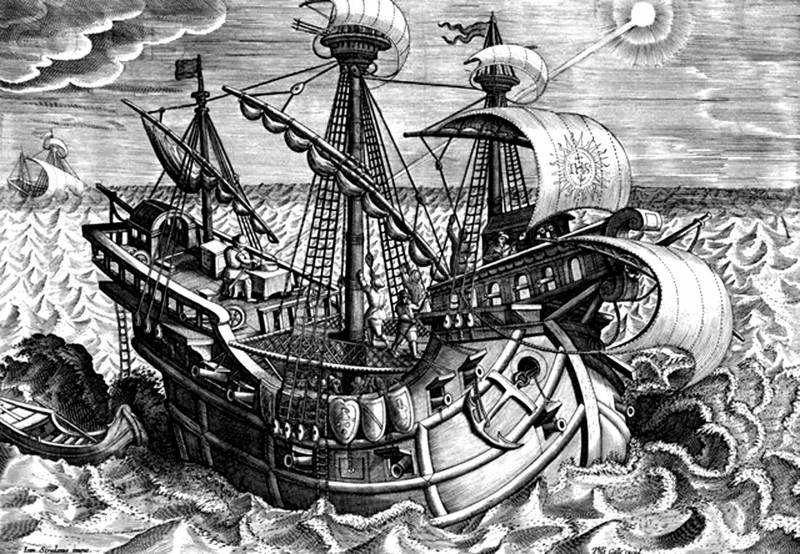
Information